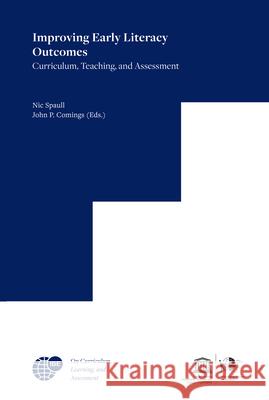Improving Early Literacy Outcomes: Curriculum, Teaching, and Assessment » książka
Improving Early Literacy Outcomes: Curriculum, Teaching, and Assessment
ISBN-13: 9789004402355 / Angielski / Twarda / 2019 / 300 str.
Improving Early Literacy Outcomes: Curriculum, Teaching, and Assessment
ISBN-13: 9789004402355 / Angielski / Twarda / 2019 / 300 str.
(netto: 519,50 VAT: 5%)
Najniższa cena z 30 dni: 515,91
ok. 30 dni roboczych.
Darmowa dostawa!
Learning to read and write for meaning and pleasure are arguably the two most important competences that children acquire in primary school. Yet, in 2019 more than one half of children worldwide do not reach this first rung on the literacy ladder. Improving Early Literacy Outcomes aims to address this head-on, by foregrounding the work of more than 40 researchers, most of them living in, and working on, developing countries. Their contributions illuminate, magnify, and discover anew the importance of improving early reading, through precise alignment of curriculum, teaching, and assessment, and with a special focus on some of the most under-studied countries in the world (e.g., Burkina Faso, Niger, and Senegal). Through probing analyses of research, policy, and practice, the book highlights the common experiences of high aspirations repeatedly confronting harsh realities. Sixteen interconnected chapters cast an ever-vigilant and deflationary eye on the temptation to take an unrealistic approach to early literacy, and also caution against lumping all languages, contexts, and policy-challenges into a single heap. This book provides an indispensable guide to policymakers, practitioners, educators, and academics working towards the realisation of the UN Sustainable Development Goals (SDGs). Improving the teaching, learning, and assessment of early grade literacy is key not only to expanding the quality, access, and equity of education, but also to unlocking all the other SDGs, and ultimately to driving development.











